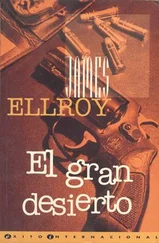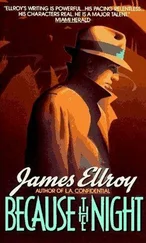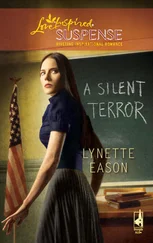The plan was brilliant, but formulating it destroyed my love of Rheinhardt’s stories, and the nightmares came back.
Now it was the old man’s neighbors who attacked me, wig-wearing monsters informed with telepathic powers. They knew I was going to murder Rheinhardt, and they told me they would let me escape from the deed only if I gave them the old pirate’s money. When I refused, they took on the faces of my Aspen victims, taunting me with the refrain from an old big band tune — “I’ve Got a Kraut in Kalamazoo! Kalamazoo! Kalamazoo! Kala-ma-zoo-zoo-zoo!”
Nine straight mornings I woke up shrieking and kicking and flailing. On my feet but still in my dreams, I lashed out at the furniture in my bedroom, knocking over night-stands and chairs. The first time, Rheinhardt rushed in, concerned. Then, day by day, he grew more and more worried. As the nightmare mornings continued, they eclipsed our storytelling hours, and I saw the old man’s worry turn to disgust. I was not the hard case he had thought; Lansky and Dillinger would have considered me a sissy; he was a sissy himself for sharing his secrets with someone so weak.
Now Rheinhardt’s tales were told in a desultory tone, and Ross took over the many faces of his characters. I knew it was time to kill the old man or get out.
Knowing that one more screaming/stumbling/lashing episode would push Rheinhardt into ordering me to leave, I foiled potential nightmares by staying awake to scheme. After one sleepless night I had the old man’s handwriting down pat; after two I had notes written to Visa, Diner’s Club and American Express. My third night was a trip to Kalamazoo’s South Side, where I scored a half-dozen 1½-grain Seconal. Night four — dingy, zorched, whacked-out and fried from 108 hours of continuous consciousness — was when I struck.
First I emptied the Seconals into Rheinhardt’s nightcap of Canadian Club and milk. He chugged the drink down as he usually did, and half an hour later I saw him asleep on his bedroom floor, half in and half out of his pajamas. Leaving him there, I tore through the house with a wet washcloth, wiping every wall and furniture surface in every room I had been in. With that elementary track-covering accomplished, I raided Rheinhardt’s basement money cache, stuffed huge wads of bills into my pockets and ran the uphill mile to the Kalamazoo Bus Depot, catching the late bus to Benton Heights with only seconds to spare. An hour later and eight hundred Wildebrand dollars poorer, I was behind the wheel of the now velvet-running Deathmobile II heading back to the gingerbread house.
Reentering it, my nerve ends felt as though they were being ground with sandpaper, and my heart beat so hard that I knew it would have to burst before I completed the kill. My throat was constricted and my hands shook, and sweat buzzed on my skin as if I were a live wire. Only concentrating on not touching anything extraneous kept me from imploding, and I bolted the stairs up to Rheinhardt’s bedroom.
He was still on the floor, and a small pulsing vein in his neck told me he was still alive. Again leaving him there, I ran to my bedroom and picked up the three credit-card letters, then ran back to search the desk and dresser for checkbooks. My hands were closing on a pile of them when I heard “Imposter!” and turned around to see Rheinhardt leveling a double-barreled shotgun at me.
“IMPOSTER!”
We drew down on each other. I snagged the muzzle of my .38 as I pulled it out of my pants; Rheinhardt jerked both triggers. They hit empty chambers, and the old man smiled at me, then fell dead at my feet. Another hour later, on a shelf of rock overlooking Lake Michigan, I gave him a formal execution befitting his dignity — two shots in the head and an overhand hurl into the deep six. With his grandfatherly bequests in my glove compartment, I then took off at a law-abiding 35, all my exhaustion evaporated. Thinking of Ross, I said, “Look, Dad, no fear,” and went cruising for someone with appropriate ID to kill.
The following maxims form a summation of my next several months and epigrammatically describe certain perils inherent in roaming around America killing people:
Seek and ye shall find:
The journey, not the destination;
Beware of what ye seek;
You can run, but you can’t hide.
Mr. Perfect staggered in front of my windshield on a deserted stretch of U.S. 6 east of Columbus, Ohio, one early evening in April of ’81, and within ten miles I had heard his entire life story — family misunderstandings, shoplifting, burglary, reformatories, prison, parole and the search for the “Big Break.” At dusk we turned off the road to share a bottle I allegedly had, and moments later I shot the man twice in the head. His pockets yielded identification belonging to William Robert Rohrsfield, born within a month of my own birthday, an extra seven pounds the only physical point distinguishing him from me. I buried Martin Plunkett deep under the hard soil by the Interstate and became Billy Rohrsfield. The irony of transmogrifying myself into a fellow burglar combined with Grandpa Rheinhardt’s foolproof credit made me feel loose, cocky, stylish. From there I moved into a wordless, sleepless euphoria that felt like a permanent one-way ticket to Panaceaville, Fat City, the Big Contentment. Had I been able to verbalize in my trance, I would have told myself that at thirty-three all my needs were met, all my destinations had been reached, all my curiosities and desires had been sated. Instead of putting forth the sly spiritual epigrams that begin this chapter, I would have advanced the ethos of a Vegas hustler on a roll — I’ve got it made.
But something happened.
I had just crossed the Ohio-Pennsylvania border when I was tossed by hand out of the Deathmobile’s cab. Flying head over heels, I had a view of blue sky, U.S. 6 and my van continuing without me. Then I was back in the cab and shimmying across the dotted yellow line; then I was side-swiping a chain-link fence on the right shoulder; then I braked and banged my head on the dashboard.
When the shock was over I began crying. Too many days of too little sleep, I told myself through my tears. Be good to yourself, another voice added. I agreed in the German accent I affected when using Rheinhardt Wildebrand’s credit cards, drove very slowly to a motel and slept.
The next morning, the first thing I encountered upon rising was a perfect mental image of my “sister” Molly Luxxlor, lost since December of ’79. I wept in gratitude, then remembered that I was Billy Rohrsfield, not Russ Luxxlor, and that Billy’s sister Janet was a child-beating shrew. Molly vanished, and a facsimile of Janet took her place, curlers in her hair, a rolling pm in her hand. I laughed my tears away, shaved, showered and walked out to the motel office to return my key. The clerk greeted me with, “Auf Wiedersehn, Herr Wildebrand!” and I ran from the salutation straight to Deathmobile II, straight to another head-over-heels toss into the sky.
Airborne, I saw travel posters and billboards for the Jook Savages and Marmalade; hitting the driver’s seat, I saw L.A. County Sheriffs spread-searching a scared young man. At first he looked like Billy Rohrsfield, then he looked like Russ Luxxlor. Then I automatically moved into my old 80 %/20 % fantasy-detachment game and saw what was happening.
You can run, but you can’t hide.
My first lucid impulse was to destroy the Wildebrand credit cards and Rohrsfield ID. A second, more lucid thought stopped me: discarding such valuable cools would be an implicit admission that I couldn’t control my own selfhood. A third, most cogent thought took over from there: You are Martin Plunkett. Driving away, colors stacked up behind the litany that allowed me to hold the wheel steady and Deathmobile II at an even 55. The words were I am Martin Plunkett , and the colors were telling me exactly what they did in San Francisco back in ’74.
Читать дальше












